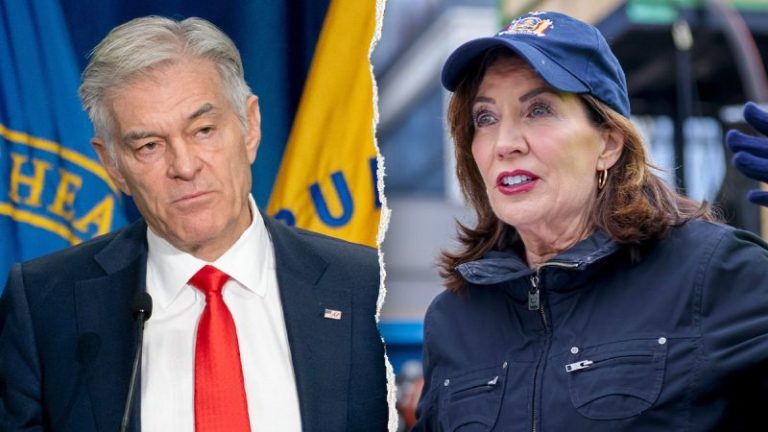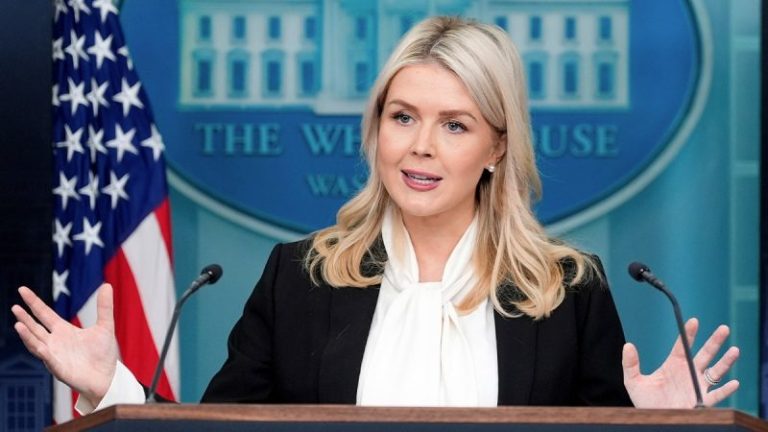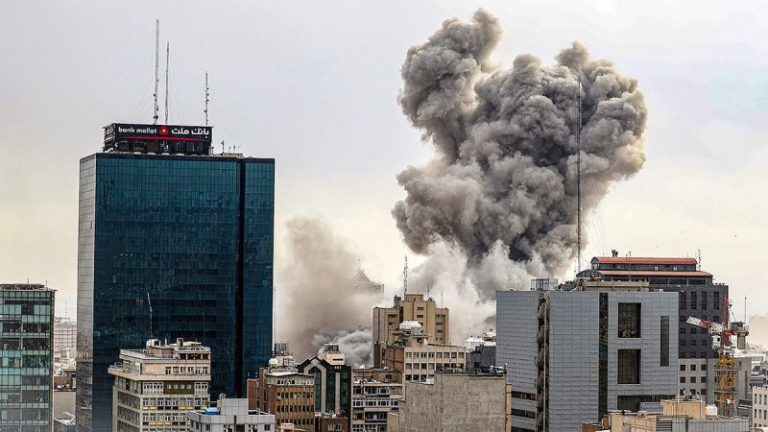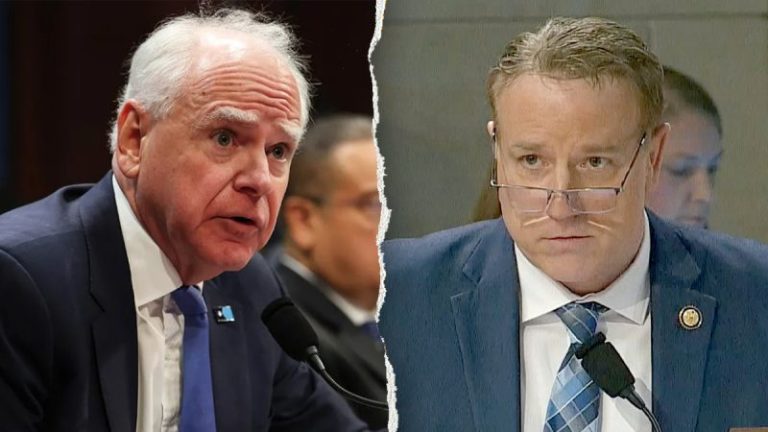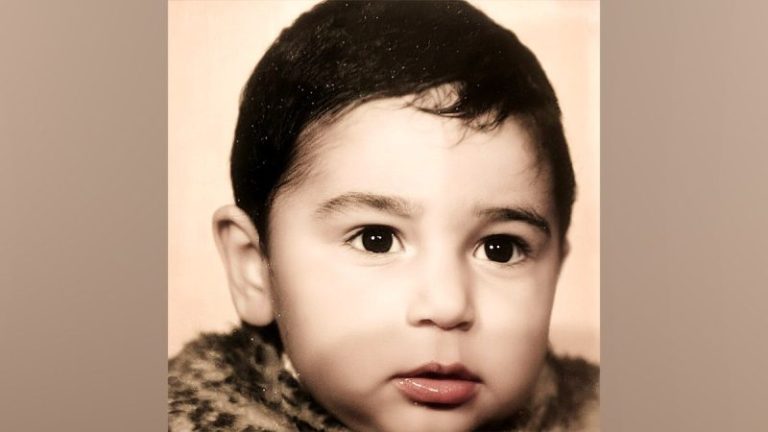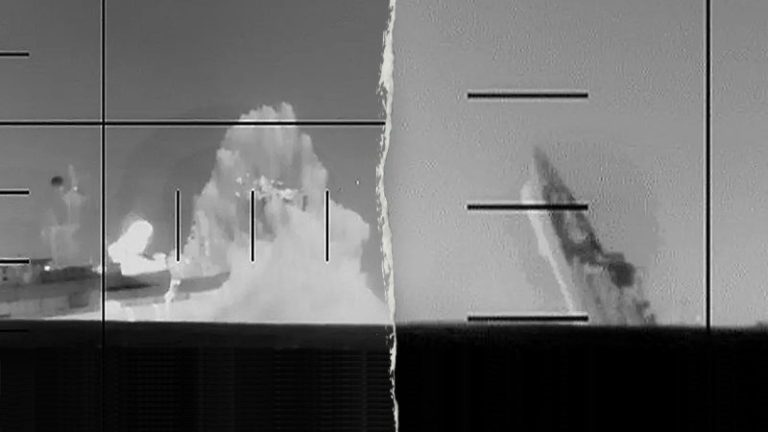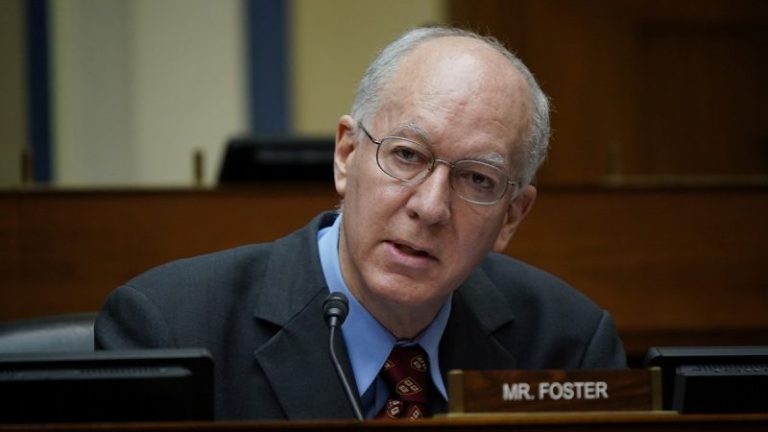A House Democrat with a background in physics is sounding the alarm over what he views as a lack of a plan to deal with Iran’s nuclear sites during the U.S. offensive campaign.
After a classified briefing Tuesday with top administration officials, Rep. Bill Foster, D-Ill., said lawmakers were not presented with a clear plan to secure or neutralize Iran’s stockpile of enriched uranium.
‘We have heard that they never had a plan for that nuclear stockpile of enriched uranium — to destroy that, to seize it or to put it under international inspection,’ he said.
The U.S. intervention was publicly justifiedby the Trump administration as a necessary step to stop Iran from developing a nuclear weapon.
U.S. forces have struck more than 1,700 targets across Iran, including ballistic missile launch sites, air defenses, naval assets and command centers. Core nuclear facilities, however, have not been among the primary targets.
‘Until that happens, Iran will be very, very close to making — as many observers have pointed out in a nonclassified situation — Iran can use that material to make a handful of Hiroshima-style nuclear devices,’ Foster told Fox News Digital. ‘Not the sort you can put on a missile, but the sort you can deliver by a number of other ways and are very hard to stop.’
Foster was referring to Iran’s stockpile of highly enriched uranium, material that, if weaponized, could be used to build a nuclear explosive device.
Experts note that building a compact warhead that fits on a ballistic missile is technically complex and requires advanced engineering. But a simpler, larger nuclear device — similar in basic concept to the bomb the U.S. dropped on Hiroshima, Japan, in 1945 — would not need to be miniaturized to fit on a missile. Such a device could not be delivered by long-range rocket but could theoretically be transported by other means.
Foster argued that containing Iran’s nuclear materials, most of which are buried deep underground, would likely require U.S. forces to enter Iran.
Recent satellite imagery shows damage to support buildings and access points at Iran’s Natanz enrichment site, though the deepest underground infrastructure at key nuclear facilities has not been confirmed as a primary target in the current campaign.
U.S. and international officials previously have acknowledged that while strikes can damage enrichment infrastructure, stockpiled enriched uranium stored underground may remain intact and potentially retrievable unless physically secured or removed.
‘You have to go in there with boots on the ground and grab a bunch of equipment,’ Foster said. ‘You have to go underground into those facilities and lose a lot of soldiers’ lives doing that.
‘They’re unwilling to do that, or they’ve decided not to or they’ve decided it’s impossible. In any case, they did not present to us any plan that would actually get the material under control.’
Without securing the nuclear material, he argued, military operations may push Iran closer to a nuclear weapon than diplomatic negotiations would have.
‘The only positive thing about the ayatollah is that he had a fatwa against building nuclear weapons,’ Foster said. ‘Who knows what the next generation of ayatollahs are going to feel? They’re going to be under a lot of pressure from the IRGC, which was not so much against having a nuclear weapon.’
Ayatollah Ali Khamenei, who was killed in the joint U.S.-Israeli operations, had previously issued a fatwa, a religious edict, opposing the pursuit of nuclear weapons. Analysts have long debated how binding or durable that ruling was.
At a White House briefing Wednesday, press secretary Karoline Leavitt said the administration believes Iran ‘wanted to build nuclear weapons to use against Americans and our allies,’ framing the strikes as necessary to prevent Tehran from advancing its nuclear ambitions.
‘The US military has more than enough munitions, ammo, and weapons stockpiles to achieve the goals of Operation Epic Fury laid out by President Trump — and beyond. Nevertheless, President Trump has always been intensely focused on strengthen our Armed Forces and he will continue to call on defense contractors to more speedily build American-made weapons, which are the best in the world,’ she said in a follow up statement to Fox News Digital.
Missile suppression strategy faces ‘math problem’
Senior administration officials have emphasized that the current phase of the campaign is aimed at dismantling Iran’s ability to project force with missiles, drones and naval assets.
Defense Secretary Pete Hegseth has highlighted strikes on Iran’s ballistic missile systems, air defenses and naval capabilities, describing the effort as a push to degrade the conventional tools Tehran uses to threaten U.S. forces and regional allies.
Secretary of State Marco Rubio similarly has said the United States is working to ‘systematically take apart’ Iran’s missile program, so it could not ‘hide behind’ it to develop a nuclear weapon.
While the broader justification for intervention centered on preventing a nuclear-armed Iran, the most immediate threat facing U.S. troops and partners has been Iran’s ongoing missile and drone launches. Administration officials contend Iran’s missile buildup was meant to create a deterrent buffer, shielding its broader strategic ambitions, including its nuclear program, from outside attack.
Lawmakers emerging from classified briefings said the campaign has become, in part, a question of sustainability.
‘We do not have an unlimited supply,’ Sen. Mark Kelly, D-Ariz., said of U.S. and allied interceptor inventories. He warned the conflict could become a ‘math problem,’ balancing launch volumes against finite air defense munitions and the ability to replenish them without weakening readiness in other theaters.
‘At some point — and we’re probably already in this — this becomes a math problem,’ Kelly added.
He said he pressed defense officials on how interceptor stocks are being replenished and whether diverting munitions to the Middle East could strain U.S. readiness elsewhere.
‘How can we resupply air defense munitions? Where are they going to come from? How does that affect other theaters?’ he said. ‘The math on this currently seems to be an issue.’
Sen. Andy Kim, D-N.J., said he also sought clarity on interceptor inventories but did not receive detailed answers.
‘I am very concerned about that,’ Kim said. ‘I did not get any specificity today. … Something akin to ‘trust us’ is not good enough for me.’
Republicans, however, pushed back on the notion that interceptor supplies are strained.
Sen. Markwayne Mullin, R-Okla., said officials told lawmakers U.S. forces are ‘in great shape,’ dismissing concerns about shortages.
Ehud Eilam, a former Israeli defense official and national security analyst, said that while a nuclear weapon remains the most serious long-term threat, missile and drone systems pose the most immediate danger if intelligence assessments conclude Iran is not on the verge of assembling a device.
‘As long as it is estimated Iran cannot produce a nuclear weapon soon, then the focus moves to missiles and drones,’ Eilam said, noting that ballistic missiles would ultimately be required to deliver any future nuclear warhead. Suppressing mobile launchers, crews and command networks can reduce Iran’s firing tempo, conserving interceptor supplies while degrading Tehran’s broader military capacity, he said.
The concern is not theoretical.
During the intense June 2025 Iran–Israel conflict, U.S. forces reportedly fired more than 150 Terminal High Altitude Area Defense interceptors, roughly a quarter of the global inventory, along with large numbers of ship-based Standard Missile interceptors to shield allies.
Analysts note that replenishing high-end air defense systems such as Patriot, THAAD and SM-3 interceptors could take more than a year under current production rates.
The Pentagon also is balancing competing demands. The same missile defense systems used to protect U.S. bases and Gulf partners are being supplied to Ukraine to defend against Russian cruise missile attacks, creating what some analysts describe as a ‘zero-sum’ competition for inventory between Europe and the Middle East.
‘There is a limit to how many THAAD missiles can be used,’ Eilam said. ‘These are not systems you can reproduce overnight.’
Related Article
Rubio says in ‘simple English’ Iran run by ‘lunatics,’ defends Trump strike as ‘right decision’
This post appeared first on FOX NEWS


